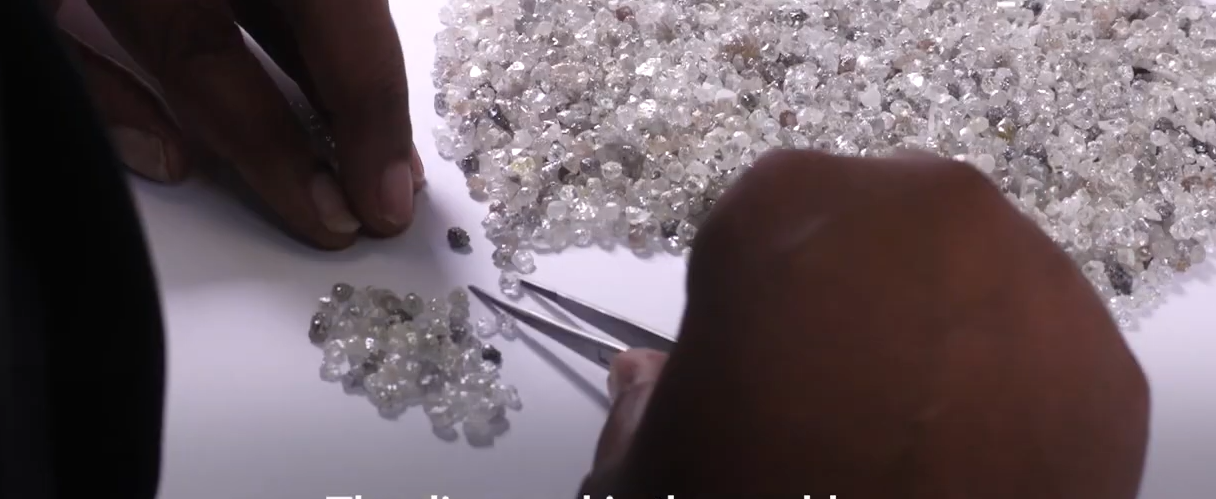And let us not forget white women whom relegated to their pristine pedestals, languished there while their husbands lusted after Black women.
Â
The New Federal Theatre located at 466 Grand Street is currently presenting “The Taking of Miss Janie� a play Ed Bullins wrote in 1966. The production will run until December 23rd.
The play opens with Miss Janie (Kate Russell) discussing her rape with her rapist and long time friend Monty played by Royce Johnson, who it appears later becomes her significant other. While Janie portrays the unwilling/willing victim, there is something about her please don’t, oh please do, sly tongue-in-cheek interplay that suggests Miss Janie dost protest too much.
In “The Taking of Miss Janie,â€? Janie presents herself as a naïve liberal. She tells Monty she just wants to be friends yet she insinuates herself into his life for over 10 years, waiting like some Black widow spider for him to recognize she loves him while pretending she doesn’t.. She dangles her weak white boyfriend Lonnie (Robbie C. Sublett) in Monty’s face, while seeking to discover the weakness in Monty that will allow her to control him. Either Janie is the most confused person in the world or she is a very calculating one. She witnesses Monty’s encounters with Black women recognizing early on his usury of them. She’s got his number while pretending she can’t count.Â
Ms. Janie even waits out his marriage to his Black wife, Peggy (Alia Chapman) who loves Monty to the extent she tolerates his indiscretions with other women, including her friend Flossie (Genia Morgan) who has sex in Peggy’s marital bed while she is at work. So in love is Peggy she even endures her husband’s impaired friends and long term friendship with Miss Janie until she can no longer ignore the farce that is her marriage.Â
Throughout all of this, Miss Janie waits, declaring herself untouchable while seeing herself as the ultimate prize. Knowing that Monty also sees her that way she strings him along, dangling the carrot of her friendship while Monty plays the loyal friend patiently waiting for the day he will acquire Janie, even paying for Janie’s aborting of another man’s child.Â
Isn’t it always the thing most inaccessible that is the thing most desired? And perhaps therein lay the crux of the matter which motivates this cat and mouse game of deception played throughout via all the dysfunctional characters.
I had to reflect upon this production before writing it because I had no way of getting inside Ed Bullins’ head to determine what prompted him to write a play depicting a Black man’s rape of a white woman. The deep seeded psychological roots of that act probably formulated its beginnings in slavery. There is something deeply sexual about forbidden fruit.Â
Something decadent about it, perhaps even erotic as it plays out as some kind of dominant/submissive, masochistic/sadistic game of eroticism whereby the participants switch roles periodically.
I can only assume Bullins’ play serves as a catalyst to unlock the shades of hypocrisy that coursed through the politics, experimentation, and miscegenation that made up the 1960’s. However, one has to travel back in time to slavery where it seems the same scenario played out via white man’s enslavement of Black people. Again, the psychological couch must be pulled out to examine the contradictions wherein whites depicted Blacks as loathsome, ugly creatures, yet nightly slipped into slave quarters where they put aside their so-called distain of all things Black to satisfy their lust for Black women via force or otherwise. And let us not forget white women whom relegated to their pristine pedestals, languished there while their husbands lusted after Black women.Â
Left untouched and trapped in their so-called white purity, these women dreamt of being ravished by the big lusty Black man; occasionally threatening rape if her needs weren’t met by slave men who risk their very lives in the taking of Miss Janie. Perhaps, to some, the danger aspect gave slave and mistress the heady power, attraction, and hypnotic sexual excitement which bind these two opposites together to this day. Again, more fodder for a psychoanalyst.
I suspect it will take many years to uncover the mystery of why some Black men both revile and love white women. And, for that matter, why white men both revile and secretly view Black women as exotic, desirable, forbidden fruit. These men, both Black and white, disparage these women to the point of exploitation and usury yet love them to the extent of raping them to acquire them. Neither male willing to confront the fragile ego, and/or fear and weakness that drive them onward in their power game of one-upmanship in which their women serve as pawns.
Directed by Shauneille Perry and produced by Woodie King, Jr., Bullins’ play portrays the checkered relationship between some Black men and white women and Black men and Black women. The Black male characters in the play are painted as scheming men who use Black women, marry them while secretly desiring white women. The Black female characters are portrayed as long suffering insecure, desperate women who support their men while waiting for their men to recognize their duplicity. The white male roles are weak, racist, and arrogant while the white females seem rich, bored, and self-serving. These characters are written as immoral and contrived formulating their shallow dispositions, ideology, and rhetoric based on expedience rather than any type of truth. The era of the 1960s it seems, was not unlike today.Â
It was an era of drugs, self discovery, and self delusion, a coming together while coming apart. This play highlights an era of contradiction and corroboration wherein nothing was simply Black or white.
There is a great deal of hypocrisy threaded through this play, especially since it was written during the turbulent era of Black nationalism when Blacks cast aside everything Eurocentric; at least, it appears, that is what Black folks told themselves.
Interested parties should check out this play. For ticket information call (212) 353-1176 or go to www.federaltheatre.org .
To subscribe to New York’s favorite Pan-African weekly investigative newspaper please click on “subscribe� on the homepage or call (212) 481-7745. For advertisements or to send us a news tip contact [email protected] “Speaking Truth To Empower,� is our motto.

















